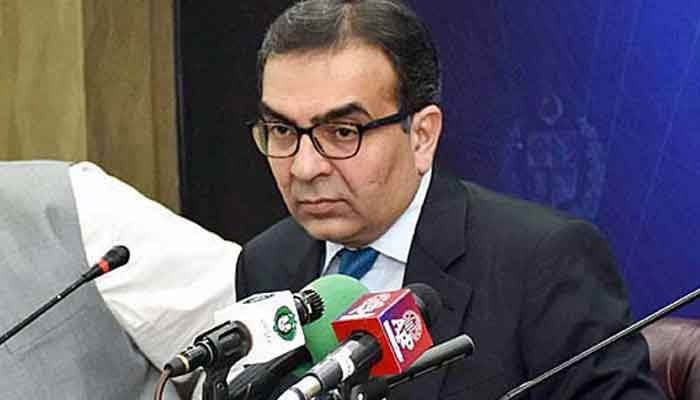Ex-minister suggests three steps to trim power tariff
If it is done amicably, it will benefit all stakeholders
ISLAMABAD: Amid the inflated power bills mainly because of the faulty power purchase agreements (PPAs) based on ‘take or pay’ loaded with huge capacity charges payments, the government is left with no option but to take doable steps to reduce the power tariff, says former energy minister Muhammad Ali while talking exclusively with The News.
According to Ali, the government will have to take three measures: 1), change of delivery schedule in LNG vessels; 2), increase in debt payment tenure of imported coal-based power plants; and 3), close down the plants, which are not operating but are getting capacity payments, O&M and insurance costs.
“There is also the issue of fuel cost, which is adding to the overall power cost. One of the big reasons is that our LNG contracts have been signed on take or pay basis. Owing to these contracts, we are forced to run our LNG plants which cost around Rs24-25 per unit of fuel cost, and we cannot run the coal-based plants which will cost us around Rs15-16 per unit in fuel cost.
“The magnitude of this is around 4,000-4,500MW. We should immediately look into changing the delivery schedule of the LNG cargoes in a way that we get more cargoes during winters which will help us avoid spot cargo buying and should also look at the possibility of spreading the remaining contracted cargoes over a longer time period depending on our demand. This way, we can run the coal plants which have cheaper fuel cost and at the same time reduce our precious foreign exchange outflow,” explained the ex-energy minister.
“More importantly, capacity payments being paid to the non-operational IPPs are adding to the cost of electricity. Today, the country needs to resolve this issue. If it is done amicably, it will benefit all the stakeholders.”
“To reduce capacity payments, the government should look into the possibility of shutting down the non-operational plants having no technical requirement of being kept in the system. These plants, which are either not operating, or are hardly operating, are still required to be paid O&M or other charges by the government. The government can agree with them on the remaining payment amount, its terms, and tenor. This is true for various plants set up under the 1994 and 2002 policies.”
The ex-minister, who is also known for the mind-blowing Muhammad Ali report on IPPs, argued that the terms and debt tenor of plants set up under the 2015 policy will also need to be looked into which will help decrease the capacity charges payments.
“When we did the power sector report in 2019-20, we had recommended that the government negotiate with all the plants but this exercise was not completed after our negotiations with the local plants.”
“While making the report, we had also asked for a small budget to get data from the international power consultants about the setup cost of similar plants in other countries around the same time. Its purpose was to evaluate if the set-up cost of power plants in Pakistan was in line with the international benchmarks. However, that budget was never approved and we could not get the required data.” He went on to say that the government always had the option to get that data and look at the set-up costs.
-
 Horrifying Pictures Of The Kidnapper Of Savannah Guthrie's Mother Released
Horrifying Pictures Of The Kidnapper Of Savannah Guthrie's Mother Released -
 Andrew's Ex-girlfriend Launches Brazen Attack On Epstein Victims On Piers Morgan Show
Andrew's Ex-girlfriend Launches Brazen Attack On Epstein Victims On Piers Morgan Show -
 Andrew Mountbatten-Windsor 'on His Own' As Palace Gives Green Light To Law Enforcement
Andrew Mountbatten-Windsor 'on His Own' As Palace Gives Green Light To Law Enforcement -
 Kanye West's Tweet About Super Bowl Halftime Resurfaced After Bad Bunny's Show
Kanye West's Tweet About Super Bowl Halftime Resurfaced After Bad Bunny's Show -
 'FBI' Star Juliana Aidén Martinez Tease Her Return To 'Law And Order: SVU' After Quitting
'FBI' Star Juliana Aidén Martinez Tease Her Return To 'Law And Order: SVU' After Quitting -
 Cardi B's Emotional Words To Pal Amid Stefon Diggs Rumored Breakup Revealed
Cardi B's Emotional Words To Pal Amid Stefon Diggs Rumored Breakup Revealed -
 Princess Eugenie Breaks Cover Amid Explosive Family Scandal
Princess Eugenie Breaks Cover Amid Explosive Family Scandal -
 Will Kate And Anthony Have 'Bridgerton' Spin Off? Revealed
Will Kate And Anthony Have 'Bridgerton' Spin Off? Revealed -
 Schoolgirl Eaten Alive By Pigs After Brutal Assault By Farmworker
Schoolgirl Eaten Alive By Pigs After Brutal Assault By Farmworker -
 King Charles’ Statement About Epstein Carries A Secret Meaning: Here’s Why It Can Be An Invite To Police
King Charles’ Statement About Epstein Carries A Secret Meaning: Here’s Why It Can Be An Invite To Police -
 Demi Lovato Delivers Heartbreaking Message To Fans About Her Concerts
Demi Lovato Delivers Heartbreaking Message To Fans About Her Concerts -
 Sweden's Princess Sofia Explains Why She Was Named In Epstein Files
Sweden's Princess Sofia Explains Why She Was Named In Epstein Files -
 Activist Shocks Fellow Conservatives: 'Bad Bunny Is Winner'
Activist Shocks Fellow Conservatives: 'Bad Bunny Is Winner' -
 Noel Gallagher Challenges Critics Of Award Win To Face Him In Person
Noel Gallagher Challenges Critics Of Award Win To Face Him In Person -
 Minnesota Man Charged After $350m IRS Tax Scam Exposed
Minnesota Man Charged After $350m IRS Tax Scam Exposed -
 Meghan Markle 'terrified' Over Possible UK Return
Meghan Markle 'terrified' Over Possible UK Return




